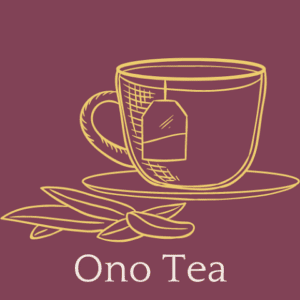In an era where health and wellness have taken center stage, people are increasingly turning to natural remedies to support their well-being. Among these, herbal tea stands out as a simple, enjoyable, and effective way to enhance the body’s defenses. For centuries, cultures around the world have relied on the power of plants to promote health, and modern science is beginning to catch up, validating many of these traditional practices.
Herbal teas, made from a variety of plants, flowers, roots, and spices, offer a wealth of bioactive compounds that can strengthen the immune system naturally. This article explores how herbal tea works to bolster immunity, the best varieties to sip for optimal health, and practical tips for incorporating them into your daily routine.
The Immune System: Your Body’s Natural Shield
Before diving into the benefits of herbal tea, it’s worth understanding the immune system itself. This complex network of cells, tissues, and organs works tirelessly to protect the body from pathogens like viruses, bacteria, and fungi. A strong immune system can quickly identify and neutralize threats, while a weakened one may leave you vulnerable to illness. Factors such as stress, poor diet, lack of sleep, and environmental toxins can compromise immunity, making it essential to support it through lifestyle choices.
Herbal teas offer a gentle yet powerful way to do just that. Unlike pharmaceutical interventions, which often target specific symptoms, herbal teas provide a holistic boost, supplying antioxidants, vitamins, minerals, and other compounds that nourish the body at a cellular level. Let’s explore how these infusions work their magic.
The Power of Plants: Why Herbal Tea Works
Herbal teas are not technically “teas” in the traditional sense, as they don’t come from the Camellia sinensis plant (the source of black, green, and white teas). Instead, they are infusions of herbs, spices, fruits, or flowers, each bringing its own unique set of health benefits. What makes them particularly effective for immunity is their rich content of phytochemicals—natural compounds produced by plants to protect themselves from disease and environmental stress. When we consume these plants, we inherit some of that protective power.
- Antioxidants Galore
Many herbal teas are packed with antioxidants, which neutralize free radicals—unstable molecules that can damage cells and weaken immunity. Oxidative stress, caused by an excess of free radicals, has been linked to chronic inflammation and a higher susceptibility to infections. Herbs like elderberry, hibiscus, and rooibos are especially high in antioxidants such as flavonoids and polyphenols, which help reduce inflammation and support immune cell function. - Anti-Inflammatory Properties
Chronic inflammation can suppress the immune system, making it harder for the body to fight off pathogens. Herbal teas like chamomile, turmeric, and ginger contain anti-inflammatory compounds that calm the body’s inflammatory response, creating an environment where immune cells can thrive. For example, curcumin, the active compound in turmeric, has been shown to modulate immune activity and enhance the body’s ability to respond to threats. - Vitamins and Minerals
Certain herbal teas provide essential nutrients that are critical for immune health. Nettle tea, for instance, is a powerhouse of vitamin C, iron, and magnesium, all of which play a role in maintaining a robust immune system. Vitamin C, in particular, is a well-known immune booster, stimulating the production and function of white blood cells. - Antimicrobial Effects
Some herbs have natural antimicrobial properties, directly combating bacteria, viruses, and fungi. Teas made from oregano, thyme, or echinacea can act as a first line of defense, helping to ward off infections before they take hold.
Top Herbal Teas for Immune Support
With so many herbal teas to choose from, it can be overwhelming to know where to start. Below are some of the most potent options for boosting immunity, backed by both tradition and emerging research.
- Echinacea Tea
Echinacea, a flowering plant native to North America, has long been revered for its immune-enhancing properties. Studies suggest that it can increase the number of white blood cells, which are crucial for fighting infections, and may even reduce the duration of colds. Its slightly earthy, floral flavor makes it a soothing choice during cold and flu season. - Elderberry Tea
Elderberries are a traditional remedy for respiratory infections, and for good reason. Rich in anthocyanins (a type of antioxidant), elderberry tea has antiviral properties that can inhibit the replication of certain viruses. It’s also high in vitamin C, making it a double-duty immune supporter. The tea has a tart, fruity taste that pairs well with honey. - Ginger Tea
Ginger is a warming spice with potent anti-inflammatory and antimicrobial effects. It stimulates circulation, aids digestion, and helps the body detoxify—all of which indirectly support immune function. Fresh ginger tea, made by steeping grated ginger root in hot water, is especially effective when combined with lemon for an extra vitamin C kick. - Peppermint Tea
Peppermint’s menthol content gives it decongestant and antimicrobial properties, making it a great choice for clearing sinuses and fighting off respiratory infections. It also soothes the digestive system, which houses a significant portion of the body’s immune cells. - Turmeric Tea
Known as “golden tea” when blended with milk or a milk alternative, turmeric tea harnesses the power of curcumin to reduce inflammation and enhance immune responses. Adding a pinch of black pepper increases curcumin’s bioavailability, amplifying its effects. - Hibiscus Tea
With its vibrant red hue and tart flavor, hibiscus tea is a delicious way to load up on antioxidants and vitamin C. It’s been shown to lower blood pressure and fight oxidative stress, both of which contribute to a healthier immune system.
How Herbal Tea Enhances Everyday Immunity
Drinking herbal tea isn’t just about fighting off illness—it’s about building resilience day by day. The immune system thrives on consistency, and incorporating herbal tea into your routine can provide ongoing support. For example, starting your morning with a cup of ginger tea can awaken your senses and prepare your body to tackle the day’s challenges. A midday hibiscus tea can offer a refreshing antioxidant boost, while an evening chamomile infusion can reduce stress (a known immunity suppressor) and promote restful sleep.
Herbal teas also hydrate the body, which is essential for maintaining the mucosal barriers in your respiratory and digestive tracts—key entry points for pathogens. Staying hydrated ensures that these barriers remain intact and functional, adding another layer of natural protection.
Practical Tips for Incorporating Herbal Tea into Your Life
Ready to harness the immune-boosting power of herbal tea? Here are some practical ways to make it a seamless part of your routine:
- Experiment with Blends: Combine herbs like ginger and turmeric or elderberry and echinacea for a synergistic effect. Many health food stores sell pre-made immune-boosting blends, or you can create your own at home.
- Sweeten Naturally: Enhance the flavor with a drizzle of raw honey, which has its own antimicrobial properties, or a squeeze of lemon for added vitamin C.
- Make It a Ritual: Pair your tea-drinking with a moment of mindfulness—whether it’s a quiet morning reflection or a cozy evening wind-down—to amplify its stress-reducing benefits.
- Use Fresh or Dried Herbs: While tea bags are convenient, brewing with fresh herbs (like grated ginger or peppermint leaves) or high-quality dried herbs can maximize potency.
- Stay Consistent: Aim for 1-3 cups daily, especially during colder months or times of high stress, to keep your immune system in top shape.
Potential Considerations and Precautions
While herbal teas are generally safe for most people, moderation and awareness are key. Some herbs, like echinacea, may interact with medications or cause allergic reactions in sensitive individuals. Pregnant or breastfeeding women should consult a healthcare provider before trying new herbal teas, as certain varieties (like licorice root) may not be suitable. Additionally, herbal teas should complement—not replace—a balanced diet, regular exercise, and adequate sleep, all of which are foundational to immune health.
The Science Behind the Sip
Modern research is increasingly affirming what herbalists have known for ages: plants have profound effects on human health. A 2019 study published in Phytotherapy Research found that echinacea extracts can enhance immune responses and reduce the severity of respiratory infections. Similarly, a 2017 review in Nutrients highlighted ginger’s role in modulating inflammation and supporting immunity. Elderberry’s antiviral potential was underscored in a 2016 study in Nutrients, which showed it could inhibit influenza virus activity. These findings, while promising, are just the tip of the iceberg, as scientists continue to explore the mechanisms behind herbal teas’ benefits.
A Cup of Wellness in Every Sip
Herbal tea offers more than just a warm, comforting beverage—it’s a natural ally in the quest for a stronger immune system. From the antioxidant punch of hibiscus to the anti-inflammatory might of turmeric, each cup delivers a dose of plant-based goodness that supports your body’s defenses. In a world full of synthetic solutions, herbal tea reminds us of the simple, time-tested wisdom of nature. So, the next time you’re feeling run-down or just want to stay ahead of the game, brew yourself a cup of herbal tea. Your immune system will thank you.
Sources
- Schoop, R., et al. (2019). “Echinacea in infection prevention and treatment: A review of the evidence.” Phytotherapy Research. Available at: www.phytotherapyresearch.com
.
- Bode, A. M., & Dong, Z. (2017). “The Amazing and Mighty Ginger.” Nutrients. Available at: www.mdpi.com/journal/nutrients
.
- Tiralongo, E., et al. (2016). “Elderberry Supplementation Reduces Cold Duration and Symptoms in Air-Travellers: A Randomized, Double-Blind Placebo-Controlled Clinical Trial.” Nutrients. Available at: www.mdpi.com/journal/nutrients
.

